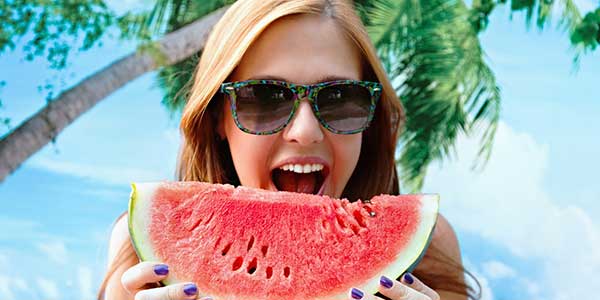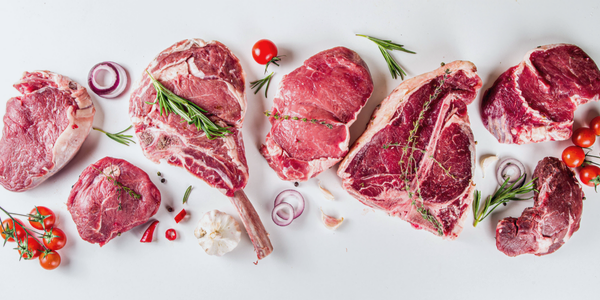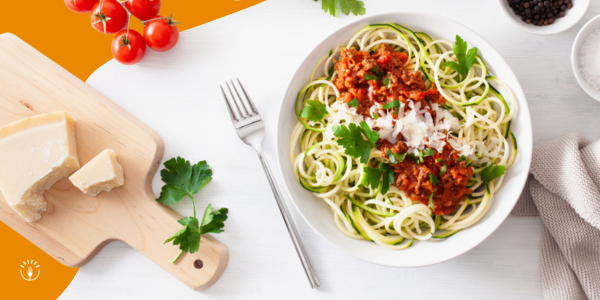
While being physically active is key for good health, losing weight and getting in shape further requires the assistance of a well-balanced diet. Nourishing and fueling with food is imperative to boost fitness levels, as it replenishes glycogen and stimulates muscle growth, to accelerate recovery rates and keep the body powered to tackle regular exercises!
15 Fitness Foods for Weight Loss and Getting In Shape
Plant-Based Sources
1. Oats
Although oats are oftentimes associated to a drab breakfast option, a bowl of oatmeal is fiber-packed and valuable in replenishing glycogen stores. Enrich and complement oats with these overnight oatmeal recipes.
2. Quinoa
This fitness food is a unique seed based on its valuable protein content, supplying eight grams per cup. It is also considered a complete protein, providing all nine essential amino acids the body requires for fundamental muscle synthesis and growth.
3. Beans
While beans are notorious for their high fiber content, they are an essential plant-based protein source and offers magnesium, a mineral that can help relax sore muscles. Throw beans into casseroles, prepare as chili, or pair with rice and veggies for a nourishing dose of healthy carbs and protein.
4. Tempeh
Tofu's mostly forgotten about relative, also known as tempeh, actually has a higher protein content and bares great attention. However, both tofu and tempeh are plant-based protein options, making them extremely valuable for those cutting down or eliminating animal products to maintain muscle mass. Find more on tofu or tempeh here.
5. Green, Leafy Veggies
Green, leafy veggies are not only low in calorie, but packed with fiber and valuable nutrients. A high fiber diet can help induce satiety without packing on great. Additionally, the B vitamins they offer help the body utilize calories from foods into usable energy. Increase these non-starchy veggies into your diet by throwing in spinach into smoothies, sneaking them into pasta sauces, preparing a large salad paired with a lean protein source, or pan-frying them in olive oil and seasoning with fresh herbs.
6. Sweet Potatoes
Though dieters often ignore starchy vegetables, sweet potatoes are extremely nutritious and loaded with nutrients. The healthy carb content also helps to stabilize blood sugar levels and replenish glycogen stores. Find healthy sweet potato recipes here.
7. Berries
The colors of berries are not only visually-appealing, but packed with powerful antioxidants to help protect cells against damage, including muscle cells (known myocytes) that undergo stress during exercise. Add fresh berries to smoothies, yogurt, oatmeal, or simply enjoy as is!
8. Watermelon
The evident high water volume of watermelon can help keep the body hydrated, while the potassium content can replenish electrolytes lost in sweat. Convincing research also suggests watermelon can help diminish post-workout muscle soreness.
Animal Proteins
9. Eggs
Crack open the benefits of eggs! (And don't skip the yolk...) Though their cholesterol content was worrisome not terribly long ago, hatching research supports their go ahead. One large egg supplies six grams of protein along with healthy fats and fat-soluble vitamins.
10. Chicken
Although the controversy lives on regarding which came first, the egg and chicken are both respected fitness foods. Not only does a 3-ounce serving offer an average of 21 grams of protein, but is extremely versatile and can be prepared in a number of flavorful ways. And as a general rule of thumb, the whiter the meat, the lesser the fat content.
11. Salmon
Full of healthy fat and protein, salmon is valuable for promoting heart health and muscle synthesis. Along with simply grilling the fish and pairing with roasted veggies, try one of these healthy salmon recipes.
12. Beef
Despite the worry of red meat, lean beef can fit into a well-balanced diet. Beef offers valuable protein to promote muscle growth and a hefty load of iron, a mineral vital in transporting oxygenated blood throughout the body, including to the muscles.
Milk and Dairy Products
13. Chocolate Milk
Chocolate lovers, rejoice! Chocolate milk is touted as one of the most post-workout recovery options related to its healthy carb and protein content and hydration properties. In fact, the chocolately drink has even shown to outperform other products with the same nutritional profile. If lactose intolerant, try sticking to soymilk, as it offers the most protein out of all the plant-based milks.
14. Greek Yogurt
Unlike most traditional yogurts, Greek yogurt bursts with protein. To reduce sugar content, go for a plain Greek yogurt and add natural sweetness with fresh fruits, light drizzles of honey, or sprinkles of cinnamon. For a power-pocket fitness food, add potassium-packed banana slices on top to combat against unpleasant muscle cramping following a rigorous workout.
15. Cottage Cheese
The rising interest of Greek yogurt may have left cottage cheese left in the dark, though its nutritional content should never be dimmed. Just a half cup serving offers a whopping 15 grams of protein and 5 grams of carb, making the carb to protein ratio (3:1) ideal for post workout recovery and weight loss.
It is important to remember healthy foods for weight loss and getting in shape is not confined to this list, as all foods can fit into a well-balanced diet, though whole foods should be the primary focus. A nutritious meal plate consists mostly of vibrant veggies, a lean protein and healthy fat source, along with whole grains and perhaps a piece of fruit!







